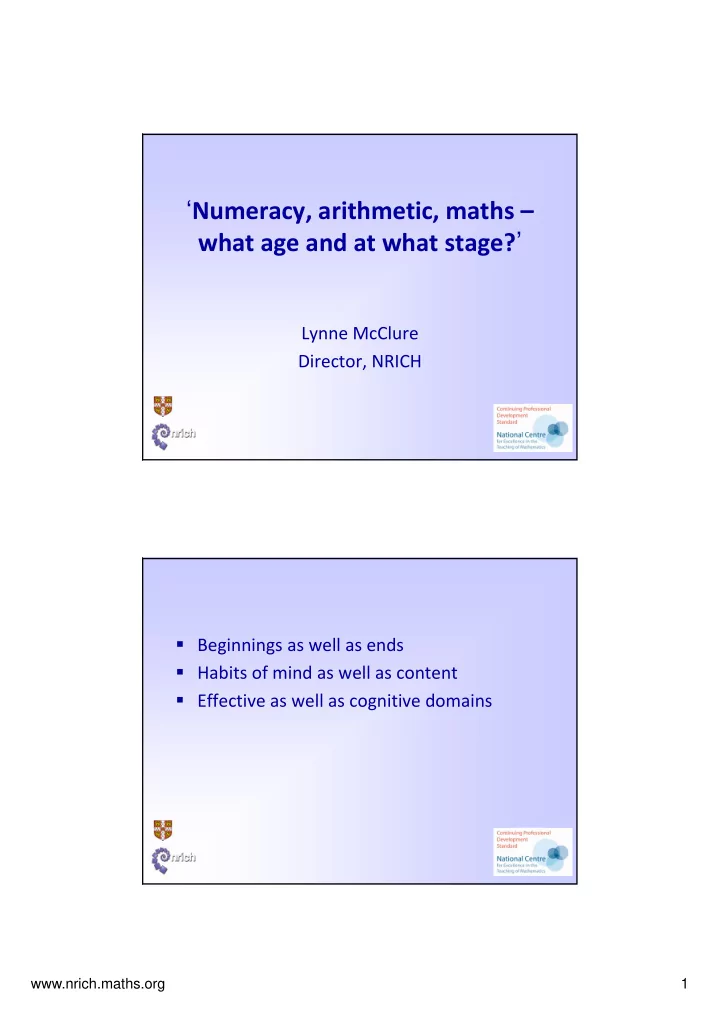

‘ Numeracy, arithmetic, maths – what age and at what stage? ’ Lynne McClure Director, NRICH Beginnings as well as ends Habits of mind as well as content Effective as well as cognitive domains www.nrich.maths.org 1
Beginnings as well as ends The importance of the art or science of teaching ‐ didactics – and teachers who are experts in it. The personal and national impact of not securing competence by the end of primary school Arithmetic Proficiency is an appreciation of number and number operations, which enables mental calculations and written procedures to be performed efficiently, fluently and accurately. Mathematical Proficiency requires a focus on core knowledge and procedural fluency so that pupils can carry out mathematical procedures flexibly, accurately, consistently, efficiently, and appropriately. Procedures and understanding are developed in tandem. (NCETM 2013) www.nrich.maths.org 2
Thinking about the future is risky business. Past experience tells us that today’s fi rst graders will graduate high school most likely facing problems that do not yet exist. Given the uncertain needs of the next generation of high school graduates, how do we decide what mathematics to teach? Should it be graph theory or solid geometry? Analytic geometry or fractal geometry? Modeling with algebra or modeling with spreadsheets? These are the wrong questions, and designing the new curriculum around answers to them is a bad idea. ( Cuoco, Goldenberg, & Mark, 1996) Habits of mind Students should be : Pattern sniffers Inventors Experimenters Visualisers Describers Conjecturers Tinkerers Guessers (Cuoco, Goldenberg, & Mark, 1996) www.nrich.maths.org 3
Effective as well as cognitive domain Quiet disaffection Tedium Isolation Rote learning Elitism Depersonalisation (Nardi and Steward, 2003) www.nrich.maths.org 4
Recommend
More recommend